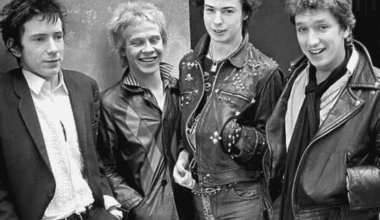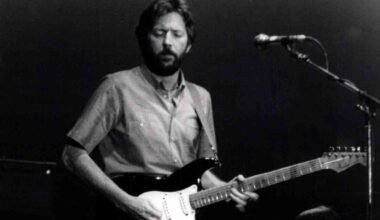There’s an old saying that bands should break up over disagreements about track lists, not the usual rock and roll backstabbing. Creating a cohesive set of songs that complement each other is already a challenge, and even once they hit the road, bands are bound to argue over what should make the live set and what stays a hidden gem for fans to uncover.
AC/DC has never shied away from giving the crowd what they want, but Brian Johnson has always felt a bit disappointed about how rarely they played the track ‘What’s Next to the Moon.’
When Johnson got the call to join the legendary Australian rockers, he knew he had some massive shoes to fill. The shadow of Bon Scott still loomed over the band’s future, but Scott’s passing didn’t signal the end of AC/DC’s high-octane rock. Their reputation for wild, rowdy performances was as alive as ever.
Though Johnson contributed his fair share of iconic vocals post-Back in Black, he always had a soft spot for Powerage, an album bursting with energy and edge.
Despite AC/DC’s image as a straight-up rock band, Powerage flirts with elements of punk and metal, blending those aggressive styles into their signature sound. While ‘Rock and Roll Damnation’ was a solid lead single, much of the album didn’t aim for the mainstream.
Tracks like ‘Riff Raff’ showcased one of the most killer riffs of the ‘70s, but ‘What’s Next to the Moon’ is where Johnson felt most at home—it tapped into the band’s bluesy core.
AC/DC has always leaned into the raw, dirty side of rock and roll, and ‘What’s Next to the Moon’ captured that grit perfectly. Its slow, spacious rhythm harkened back to classic blues, with Bon Scott’s voice delivering lines that could have just as easily been sung by a legend like Muddy Waters.
Despite Johnson’s excitement at singing for AC/DC, he felt a tinge of frustration knowing they rarely performed the song live.
Reflecting on it, he said, “Well, I wish we did it. We only did it a couple of times, and I loved it to death.”
Yet, Johnson’s signature screeching vocal style didn’t quite match the slower, bluesy feel of ‘What’s Next to the Moon,’ which is likely why it stayed in Bon Scott’s era. Johnson’s strengths lie in his high-energy delivery, and slowing things down may not have been his natural fit.
That said, maybe it’s time for AC/DC to dust off this deep cut on future tours. Johnson’s performance on Slash’s ‘Killing Floor’ proves he’s got the chops for blues, so why not let him channel his inner Chicago bluesman on an AC/DC classic?







